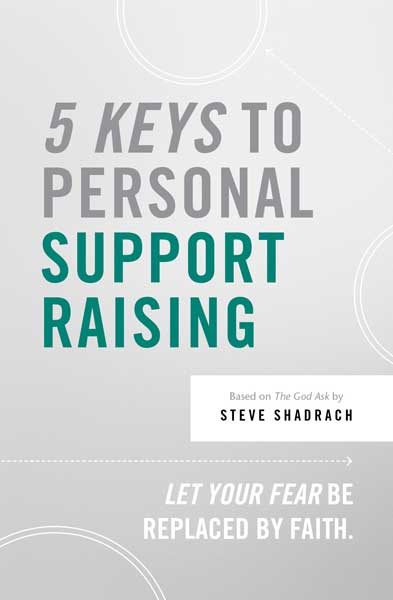Well….both. But sometimes they’re pitted against one another. Have you ever had someone respond to your support request by asking, “Why don’t you go out and do your ministry the biblical way?” Curious, you inquire further, and they confidently proclaim, “Well, Jesus was a carpenter and Paul was a tentmaker. They didn’t go and beg for support. They took care of themselves.”
A look at Jesus
Even though Jesus could have impressed everyone with an endless supply of instant cash, He chose to depend on God—and others—who were “contributing to their support out of their private means.” (Luke 8:1-3). If the Son of God funded his personal and ministry expenses from the ongoing support of individuals, why are we unwilling to embrace it too? He also called 12 men to leave their jobs and follow Him, even training them how to live and minister from the support of others (Luke 10:1-11).
A look at Paul
There are only three places in the New Testament where Paul made tents:
Thessalonica (2 Thess. 3:8,9)
Even though Paul spent a very short period of time with this young church, he immediately recognized them as being lazy and even using their newfound doctrine on the second coming as an excuse not to work. Apparently they had read one too many “Left Behind” books and were waiting on the rooftops—instead of out building them! Paul chose to model what it meant to work hard.
Ephesus (Acts 20: 33,34)
Paul’s ministry there moved the converts to quit buying idols of the goddess Diana. If Paul had taken money from believers there, he might have been accused of putting the myriad of heathen craftsmen out of business for personal gain. He chose to forego support for a brief time in order to win the lost.
Corinth (Acts 18:4,5)
Yes, Paul was temporarily making tents—and thus only able to preach on Sabbaths—but when Silas and Timothy arrived (with financial support) he began devoting himself “exclusively to preaching”. In 1 Cor. 9 Paul zealously defended his right to be supported by the Corinthians, but because of their immaturity (including accusing Paul of preaching for profit), he briefly chose to support himself to be “above reproach.”
Now, there are a number of nations around the world where they don’t take missionary visas, and a believer is required to work a secular job, legitimately contributing to the economy of the closed country. Even then, many of these “tentmakers” still have support teams back home to fully fund their living and ministry expenses. So, like Paul, we shouldn’t pit these two methods of support against each other, but instead, do whatever we need to get the gospel out!

